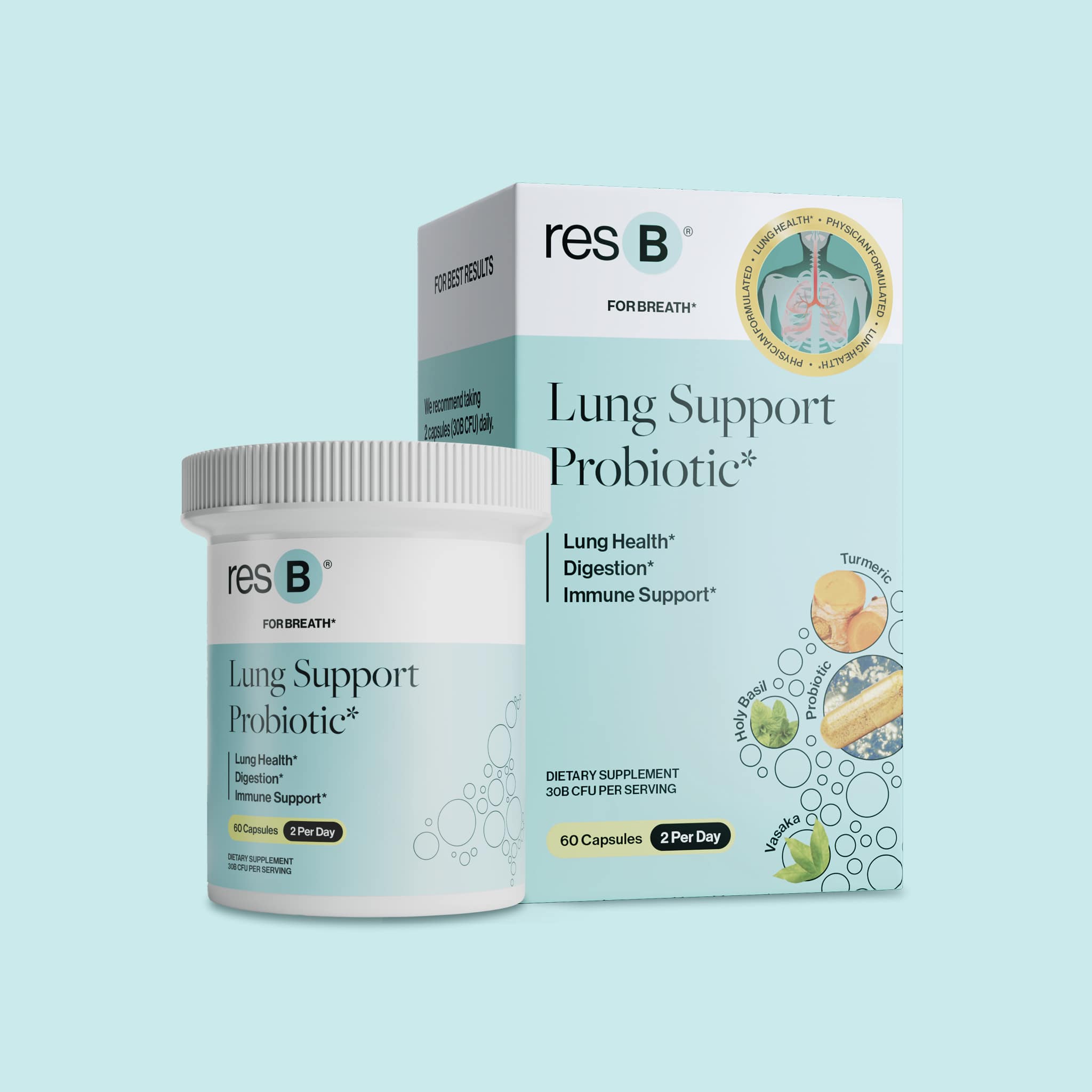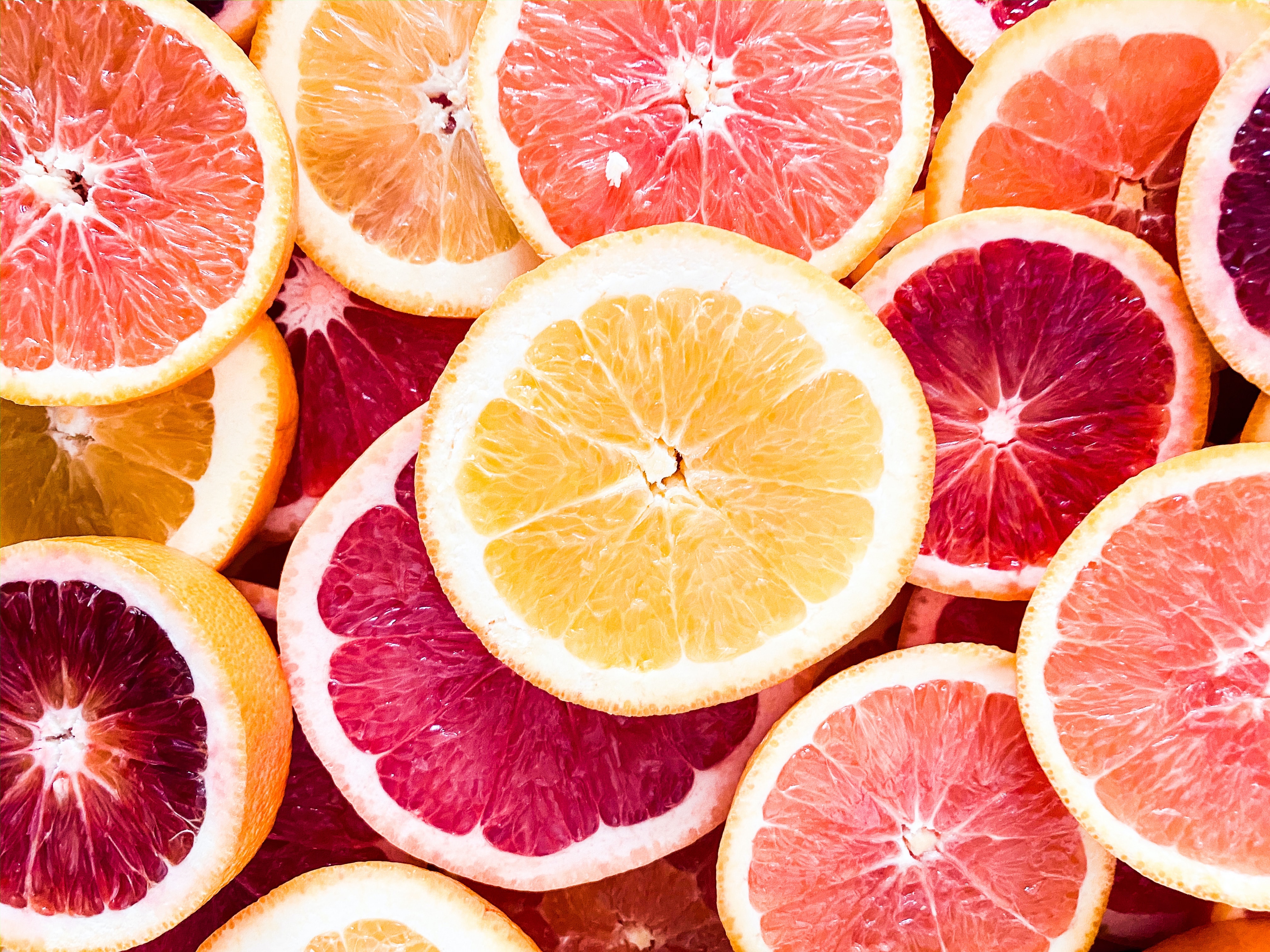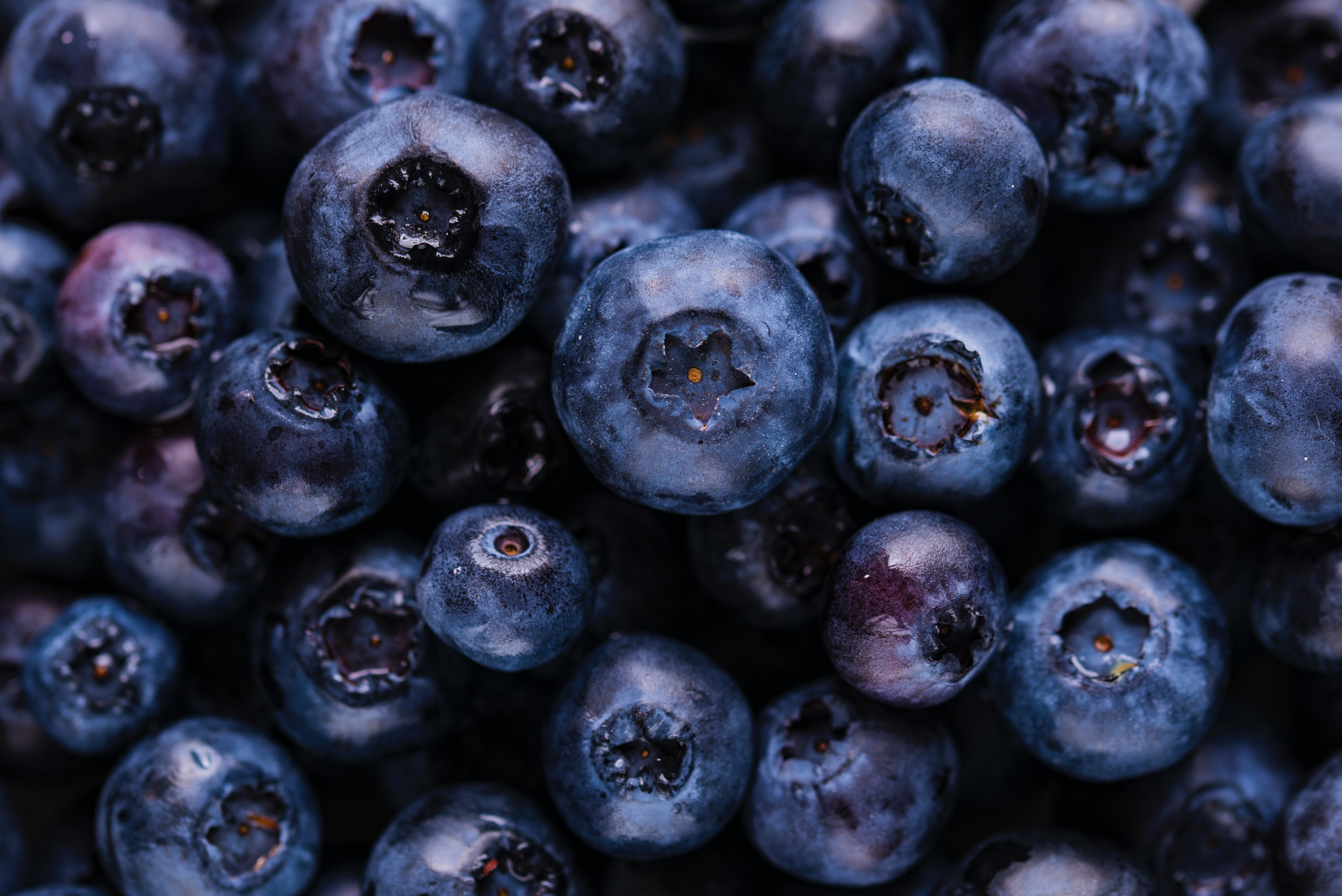Our lungs are crucial organs responsible for oxygenating our bodies and removing carbon dioxide, making their health an important factor in our overall well-being.
But we don't often think of lung health until we need to. We often associate poor lung health with smoking, and we don’t think of ways to improve lung health as including diet and exercise.
However, what you eat plays a profound role in your lung health, especially fruits for lungs! That’s right, fruits for your lung health. That’s why we created this guide to help you harness the power of fruits that help your lungs thrive.

For many of you, this may be welcome news, since fruit is a delicious and easy meal or snack. An added bonus? Fruit is good for the rest of your body, too!
So, what fruits are good for your lungs? Avocados, apples, kiwis, and strawberries contain antioxidant and plant pigments that are associated with decreased imbalance, decreased free radical production, and less oxidative stress. Learn more below to start breathing easier today!
Understanding Lung Health
Before we dive into the specifics of fruits for lung health, it's important to understand the basics of lung function and health, and the factors that can compromise it.
Your lungs are vital organs tasked with a critical function: the exchange of oxygen and carbon dioxide. This process is essential for sustaining life, as it delivers oxygen to the bloodstream while expelling carbon dioxide, a byproduct of our body's metabolism.
Each breath you take not only supports organ function and cellular processes but also helps regulate the pH levels in your blood, ensuring your body's systems operate harmoniously.
Factors Impacting Lung Health
Lung health is influenced by a complex interplay of various factors, including:
- Environmental Pollutants: Exposure to pollutants like smog, chemicals, and fine particulate matter can irritate the lung tissue and lead to difficulties in breathing.
- Smoking: Tobacco smoke is laden with thousands of chemicals, many of which can damage lung tissue and compromise the lungs' ability to function effectively.
- Respiratory Infections: These can temporarily decrease lung function. Frequent infections can also lead to more significant health issues over time if not properly managed.
- Chronic Conditions: Conditions that affect breathing or lung structure can significantly impair lung capacity and functionality.
- Allergies: Allergic reactions can cause inflammation in the airways, making breathing difficult and reducing the efficiency of air exchange.
The Role of Nutrition in Lung Health
Now, what’s the link between lung health and nutrition? A balanced diet rich in fruits, vegetables, and whole grains provides essential nutrients and antioxidants that support lung function.
These components help combat oxidative stress - a key factor in tissue wear and tear - while promoting repair and maintaining healthy tissue integrity. Specific nutrients have been identified for their roles in supporting lung health:
- Antioxidants, such as vitamin C, vitamin E, and beta-carotene, help protect lung tissue from everyday environmental exposure to pollutants and toxins.
- Omega-3 fatty acids found in fish like salmon and mackerel can help manage and reduce airway inflammation, supporting clear breathing.
- Magnesium rich foods like nuts, seeds, and leafy greens can improve lung function by enhancing the relaxation and contraction of the respiratory tract muscles.
Incorporating a diverse range of nutrient-dense foods into your diet not only supports lung health but also contributes to the overall well-being of your body, highlighting the interconnected nature of nutrition and organ function.
Whether you're looking to switch up the flavor of your morning smoothie or protein shake, or are just looking for a nutritious snack or meal addition, we're sharing a few of our favorite fruits for lungs as well as their potential benefits for your lungs and overall health!
So, What Fruits are Good for Your Lungs? The Best Fruits for Lungs Revealed
So, what fruits are good for your lungs? We’ll share what we believe to be the best fruits for lungs below along with practical tips for incorporating them into your diet. Then, we’ll talk about a few other foods you need to get in your diet along with more tips on supporting healthy lung function.
Strawberries
Even though oranges are the ones lauded for their vitamin C content, strawberries actually contain more vitamin C than their more famous counterpart, containing 59mg per 100g. This matters, because studies show that vitamin C (a powerful antioxidant) works to prevent cellular damage, including in your lungs. It also has balancing properties.
Vitamin C also supports the immune system and may reduce both the risk of respiratory infections and the duration of them. And if you smoke, vitamin C is important too. In people who smoke, those with higher levels of vitamin C have better lung function than those with lower vitamin C levels.
And the benefits don't stop there! Strawberries also contain other antioxidants, fiber, and flavonoids like Anthocyanin. Anthocyanin has been studied for its potential to slow decline in lung function.
Kiwis
Kiwis are small in size but mighty when it comes to nutritional value. The fruit is filled with nutrients like vitamins C and E, potassium, folate, and fiber, as well as a range of antioxidants.
Vitamin C has been studied for its benefits to the immune system and lung function. It may surprise you to learn that kiwis are second only to guava when it comes to Vitamin C concentration, and they also tend to be more available in the grocery aisle.
In fact, they contain about 92 milligrams of vitamin C per 100 grams of fruit. This is substantially higher than oranges, which provide about 53 milligrams per 100 grams, and even strawberries, which offer around 59 milligrams per 100 grams.
Oranges
In addition to being the most famous source of vitamin C (containing 53mg per 100g, to be specific), oranges contain flavonoids that are being explored in in vitro studies for their use against oxidative stress in human lung epithelial cells.
Avocados
The financial cost of millennials' obsession with avocado toast has become a cultural talking point, but thankfully, the health benefits of avocados are the same even when you don't pay an arm and a leg for them.
Avocados are a good source of healthy fats and vitamins E, K, and B2 (riboflavin). They're also known for their antioxidant and anti-inflammatory properties.
Apples
As it turns out, “an apple a day keeps the doctor away” isn't an entirely throw-away expression. Research suggests regular consumption of apples can improve overall health, including potential benefits for your lungs, like slower decline in lung function. In one study, eating 5+ apples/week was associated with improved lung function and a lower risk of developing chronic lung conditions.
The antioxidants present in apples, like flavonoids and vitamin C, may be what helps slow decline in lung function, according to recent studies at Johns Hopkins.
Blueberries
Blueberries are a well-known antioxidant-rich, balancing fruit, so it's no surprise that their benefits extend to lung health as well. Just as they protect the rest of the body from oxidative damage, they do the same thing for our lungs.
This protection is thanks to the anthocyanins we discussed earlier, a set of pigments found in plants that give them their beautiful colors (red, purple, blue, and black specifically!).
Pineapples
Pineapples are valuable for lung health due to bromelain, an enzyme they contain which has been studied for its potential to reduce mucus and imbalance in the airways.
This can be especially beneficial for individuals experiencing allergies or sinus infections, as it helps clear airways and improve breathing. Regular consumption of pineapple or pineapple juice may aid in maintaining clear respiratory pathways and support overall respiratory health.*
Bananas
Rich in potassium, bananas help maintain electrolyte balance and support muscle function, including the muscles that control breathing.
Potassium aids the proper functioning of muscles around the lungs and the diaphragm, which are essential for effective breathing and lung capacity. Eating bananas may help enhance lung function and prevent respiratory complications by ensuring these muscles work efficiently.
Pomegranates
Pomegranates are packed with powerful antioxidants that help reduce oxidative stress, which can affect lung function adversely.
These antioxidants can protect lung tissues from damage caused by pollutants and other environmental toxins, potentially supporting lung health and reducing the risk of chronic respiratory conditions. Regular intake of pomegranate juice or the fruit itself can be a proactive measure to enhance lung health.
Watermelon
Watermelon offers hydration and contains lycopene, an antioxidant with potential lung health benefits. Lycopene may help improve respiratory health by reducing oxidative stress and imbalance in the lungs.
The high water content of watermelon also ensures that the body stays hydrated, which is crucial for maintaining moisture in the airways and preventing irritation.
Grapes
Grapes, particularly dark-skinned varieties, are rich in resveratrol, a compound with balancing properties that may benefit lung function.
Resveratrol has been shown to reduce imbalance in the respiratory tract and may help improve breathing in individuals with respiratory issues. Additionally, the antioxidants in grapes support overall immune health, which is vital for maintaining healthy lung tissue
Other Foods to Consider Beyond These Fruits for Lungs
In addition to lung-supportive fruits, incorporating a variety of other nutrient-rich foods can enhance lung health. Here’s a look at some beneficial choices:
- Beets: These root vegetables are rich in nitrates that the body converts into nitric oxide, which can help optimize oxygen uptake by dilating blood vessels and enhancing lung function.
- Tomatoes: Packed with lycopene, an antioxidant with numerous health benefits, tomatoes support the proper functioning of the respiratory system. Regular consumption of tomatoes can contribute to maintaining lung health. It protects lung tissue from oxidative damage and may improve respiratory health.
- Pumpkins: This seasonal staple is loaded with antioxidants and vitamins such as vitamin C, E, and beta-carotene, all of which are known to support lung health. Pumpkins can aid in keeping the respiratory tract clear of obstructions as these antioxidants and vitamins reduce oxidative stress and imbalance.
- Leafy Greens: Vegetables like spinach, kale, and Swiss chard are high in antioxidants, fiber, and other vitamins that support lung function. These nutrients help protect and maintain respiratory health effectively.
The Specific Nutrients in These Fruits That Support Lung Health
In addition to the specific fruits mentioned above, there are key nutrients that contribute to lung health, too.
- Vitamin C: Vitamin C is crucial for collagen production and acts as a powerful antioxidant, protecting lung tissues from oxidative stress.
- Vitamin A: Found in fruits like mangoes and apricots, vitamin A is essential for maintaining the integrity of the respiratory tract and supporting the immune system.
- Vitamin E: Avocados, kiwi, and nuts are excellent sources of vitamin E, which helps protect lung cells from damage.
- Vitamin K: Leafy greens, kiwi, and broccoli provide vitamin K, which plays a role in lung health by preventing calcification of lung tissues.
- Omega-3 Fatty Acids: Fruits like avocados and olives contain healthy fats that can help reduce imbalance in the airways.
- Potassium: Bananas, oranges, and avocados are rich in potassium, which supports proper lung function and helps maintain a healthy balance of fluids in the body.
- Fiber: Fruits are generally high in dietary fiber, which can support digestive health. A healthy digestive system can indirectly benefit lung health by reducing the risk of acid reflux, which can irritate the airways.
How Do These Nutrients Support Healthy Lungs?
The antioxidants and balancing compounds found in fruit can play a pivotal role in supporting lung function. Here's how they do it:
- Neutralizing Free Radicals: Antioxidants in fruits combat free radicals that cause cellular damage and imbalance in the lungs.
- Reducing Cytokines: Some fruits contain bioactive compounds that can modulate cytokine production, thus reducing imbalance.
- Enhancing Immunity: Fruits rich in vitamins A and C bolster the immune system, helping the body fight off respiratory infections and illnesses.
- Improving Gut Health: The fiber in fruits supports a healthy gut microbiome, which can influence systemic imbalance and immune function.
Practical Tips for Incorporating Fruits for Lungs into Your Diet
Now that you understand how fruits promote lung health, let's talk about how to eat more of them! Here are some practical tips:
- Start Your Day Right: Begin your day with fruit as a breakfast side. Add berries to your greek yogurt, blend a smoothie with avocado and strawberries, or enjoy a bowl of mixed fruit salad. Always pair fruit with healthy fat and protein for balanced blood sugar!
- Snack Smart: Instead of reaching for chips or processed snacks, opt for fruit and a source of fat or protein instead (like string cheese, nuts, avocado, or nut butter). Keep a bowl of fruit on your kitchen counter for easy access.
- Smoothies: Experiment with various fruit smoothie combinations. Include spinach or kale for an extra nutritional boost, and always add a healthy fat (like nut butter, avocado, or coconut oil) and a source of protein (like collagen peptides or protein powder) for added staying power and blood sugar balance.
- Dessert: Replace sugary desserts with fresh fruit or a fruit-based dessert like grilled pineapple or baked apples with cinnamon.
- Salads: Add sliced fruits like apples, strawberries, or mandarin oranges to your salads for a burst of flavor and nutrition. Fruit also adds a lovely texture!
- Fruit Dips: Pair fruit with healthy dips like Greek yogurt or almond butter for a satisfying snack.
- Frozen Treats: Freeze grapes, banana slices, or berries for a refreshing, healthy summer treat.
- Hydration: Infuse your water with slices of citrus fruits or cucumber to make it more appealing and hydrating.

Wrapping Up Our Guide to the Best Fruits for Lungs
That concludes our guide to the best fruits for lungs. Remember that a balanced diet, rich in a diversity of fruits and vegetables, is key to reaping the full benefits of these lung-boosting foods.
Coupled with a healthy lifestyle that includes regular exercise, adequate hydration, and avoidance of environmental pollutants, a fruit-inclusive diet can help you breathe easy and enjoy optimal lung health throughout your life.*
We have more tips on breathing exercises to increase lung capacity, breathing exercises to strengthen heart, vasaka leaf benefits, why we should breathe through nose not mouth, gut health detox, how to assess lung health, yoga for lungs,
---
Whether you need a prebiotic or probiotic supplement or both we’ve got clinically studied solutions waiting to be discovered.
These are expert opinions on lifestyle from professionals who are board-certified physicians, registered dietitians, or healthcare professionals. This content does not represent any medical advice for the prevention or treatment of any medical diseases.





